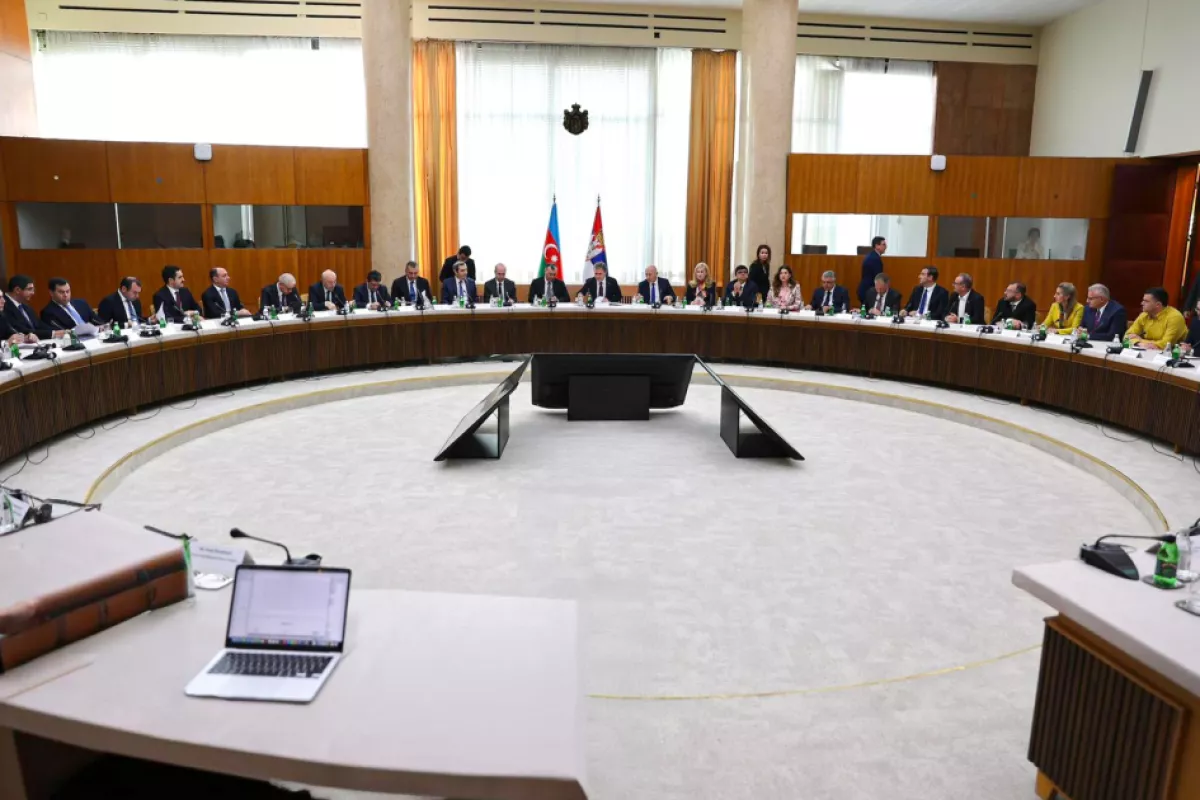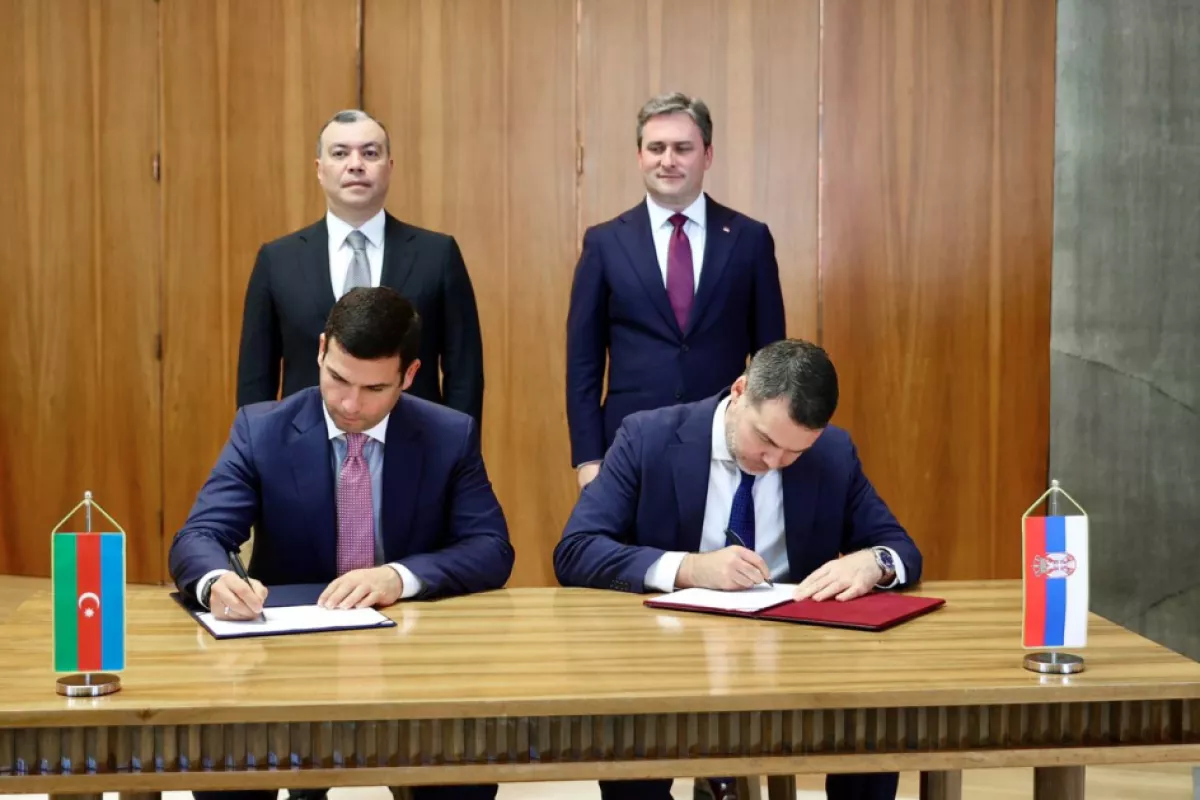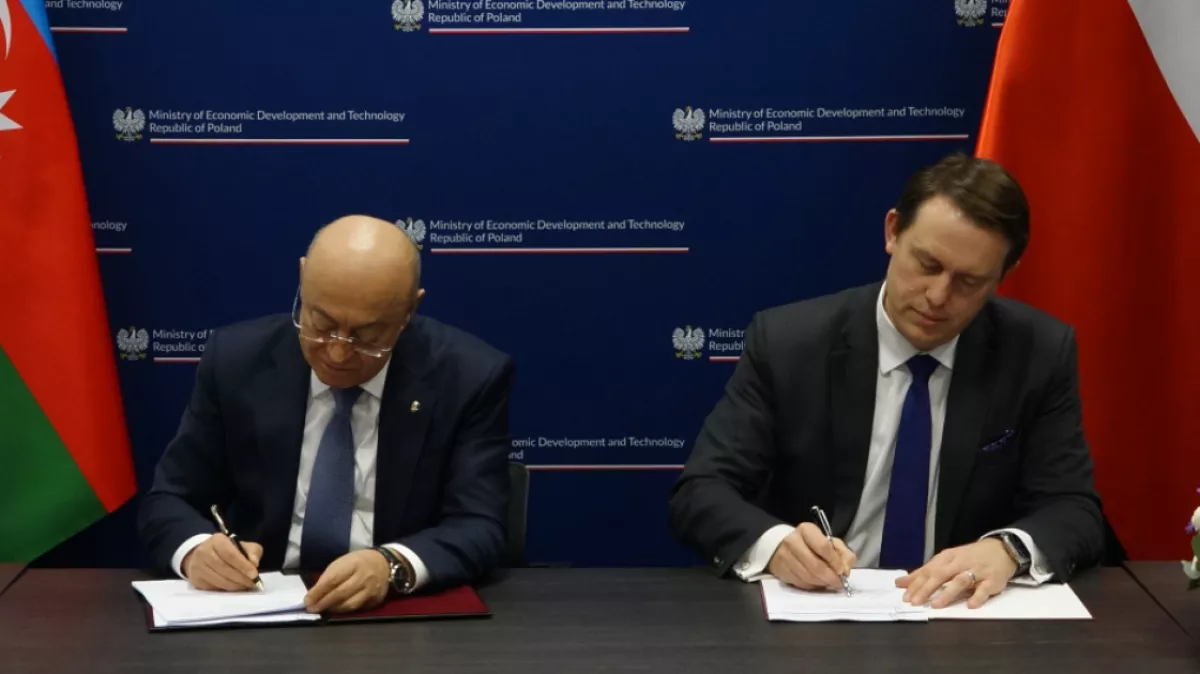Azerbaijan boosts Balkan and European ties Serbia and Poland in focus
In recent years, Azerbaijan has been diversifying its trade and expanding the reach of its non-oil exports, including to major markets in Eastern and Southern Europe. In this context, strengthening business ties with Serbia and Poland offers significant potential.
A cornerstone of Azerbaijan’s partnership with Serbia is the export of Azerbaijani gas via the Southern Gas Corridor (SGC). Meanwhile, cooperation with Poland is primarily focused on the non-oil sector. Trade turnover with both countries has been growing steadily, alongside ongoing discussions on joint ventures and investment opportunities.
On October 23, prospects for deepening economic and business cooperation with Serbia and Poland were addressed during two sessions of the Intergovernmental Commissions on Trade and Economic Cooperation.
For more than a decade, Serbia has been one of Azerbaijan’s key political and economic partners in Southeastern Europe. The exceptionally close bilateral relationship is formally anchored in the 2013 Declaration on Strategic Partnership, the 2018 Joint Action Plan, and the 2022 Memorandum on the Establishment of the Strategic Partnership Council.
Strong political will, coupled with the personal friendship between Presidents Ilham Aliyev and Aleksandar Vučić, provides a solid foundation for Azerbaijani–Serbian relations. Their mutual visits in recent years, as well as meetings at international events, clearly underscore the depth of strategic dialogue between the two nations.

After the signing of the Memorandum of Understanding on Strategic Energy Partnership between Azerbaijan and the EU in Baku in July 2022, compressor stations and gas distribution networks across Southern and Eastern Europe were modernised, and the construction of new interconnectors was accelerated. In particular, following the commissioning in December 2023 of the 170-kilometre Niš–Dimitrovgrad Interconnector (Bulgaria–Serbia Interconnector Gas Pipeline, IBS), linking the gas transportation systems of Bulgaria and Serbia, gas export cooperation between Baku and Belgrade became a central topic on the business agenda.
The relevance of progressive energy cooperation was reaffirmed during the 9th session of the Azerbaijani–Serbian Intergovernmental Commission (IGC) on Trade and Economic Cooperation, held on October 23 in Belgrade. “Since January 2024, Azerbaijan has begun supplying natural gas to Serbia, and to date exports have reached around 300 million cubic metres,” said the IGC co-chair, Azerbaijani Finance Minister Sahil Babayev. He also noted that SOCAR, EPS, and Srbijagas are collaborating on the construction of a 500 MW combined-cycle gas turbine power plant in Niš, elevating the energy partnership between the two countries to a new level.
On 26 September 2024, SOCAR and Srbijagas signed a contract for the supply of an additional volume of Azerbaijani gas to Serbia. Azerbaijan also plans to gradually increase its gas deliveries to this Balkan country to 1 billion cubic metres per year. In the long term, Baku and Belgrade aim to collaborate on new initiatives, such as the Black Sea Energy project, which envisions the delivery of “green” energy via an undersea power cable across the Black Sea.
As part of the Intergovernmental Commission (IGC), a business forum was held, attended by more than 50 companies, including 16 Azerbaijani firms. During the session and forum, Azerbaijani Finance Minister Sahil Babayev and Serbia’s IGC co-chair, Culture Minister Nikola Selaković, discussed in detail the current state and new opportunities for expanding bilateral cooperation in trade, energy, transport, information technology, customs, agriculture, tourism, social protection, and food security.
Minister Babayev also congratulated Serbia on being awarded the right to host EXPO 2027 in Belgrade (scheduled for May–August 2027) and confirmed that Azerbaijan will actively participate in the event.
A key area of cooperation is the development of B2B formats and the strengthening of ties between small and medium-sized enterprises (SMEs) in both countries. To advance this track, a Roadmap for joint activities was signed in Belgrade between Azerbaijan’s Agency for the Development of Small and Medium-sized Enterprises (KOBIA), operating under the Ministry of Economy, and the Serbian Development Agency. The meeting also highlighted the significant potential for Serbian companies willing to participate in freight transport and invest in new transport and logistics infrastructure along the Middle Corridor, linking Asia and Europe.
Among other initiatives, Azerbaijan is offering opportunities for Serbian companies to implement business projects in domestic agro-industrial parks and special economic zones (SEZs), as well as inviting them to take part in reconstruction projects in territories liberated from occupation. It was noted that currently, nine Serbian companies operate in Azerbaijan in the trade and services, agriculture, and infrastructure sectors, while leading Azerbaijani construction firms, such as AzVirt, are successfully implementing major highway projects in Serbia.

To expand business cooperation, the two countries are building a stable and reliable institutional framework to attract entrepreneurs, according to Minister Sahil Babayev: “At present, 57 agreements have been signed between our countries, and 13 more are under review and will soon be signed.”
Thanks to the active partnership between Baku and Belgrade and efforts to diversify economic ties since 2021, bilateral trade has consistently grown by an average of 15–20% annually. In particular, in 2024, trade between Azerbaijan and Serbia surged significantly, including gas supplies, exceeding $190.3 million.
Investment cooperation is still in its early stages, yet it is noteworthy that the State Oil Fund of Azerbaijan (SOFAZ) currently holds an investment portfolio in Serbia worth $72.7 million.
On the European front, Azerbaijani–Polish business ties look particularly promising. What makes them unique is that, despite the relatively small share of oil and fuel products, trade between the two countries has been growing dynamically in recent years. Specifically, bilateral trade amounted to $141 million in 2022, $161.3 million in 2023, and, continuing a steady upward trend, exceeded $222 million in 2024.
A key step in expanding trade was the opening of the Azerbaijan Trade House in Warsaw in 2018, followed in 2020 by agreements to establish systematic supplies of Azerbaijani food and wine products to the Polish Carrefour network in several cities. As a result, Poland is now considered the most promising EU market for Azerbaijani agricultural goods and food products, while the Trade House in Warsaw serves as a hub promoting “Made in Azerbaijan” products to neighbouring EU countries.
Azerbaijani exports to Poland also include kerosene, propylene, other petrochemical products, and construction materials, with aluminium rolled products, power cables, and coloured flat glass added in recent years. On the Polish side, imports to Azerbaijan are dominated by confectionery and other food products, pharmaceuticals and cosmetics, agricultural machinery, diesel engines, and equipment for the industrial, construction, and medical sectors, among others.
In Azerbaijan, 21 Polish companies operate across the services, trade, and industrial sectors. Since 2022, the V4–Azerbaijan Tech Bridge programme has been implemented to support the development of high-tech startups. A key driver of bilateral business growth is the Azerbaijan–Poland Intergovernmental Commission on Economic Cooperation (IGC), which has been active since 2006.

New avenues for business cooperation were discussed on 23 October in Warsaw, during the 9th session of the IGC, held alongside a business forum organised by the Azerbaijan Export and Investment Promotion Agency (AZPROMO), the Azerbaijan Trade Representation for Central Europe, and the Polish Investment and Trade Agency (PAIH). The forum brought together over 130 entrepreneurs from both countries.
Following the session, the protocol of the 9th IGC meeting was signed, along with a Memorandum of Understanding on Cooperation in Veterinary Matters between the Azerbaijan Food Safety Agency and the Chief Veterinary Inspectorate of Poland.
“The development of Azerbaijani–Polish cooperation in transport, railway infrastructure, agriculture and the food industry, construction, energy, tourism, as well as the establishment of joint ventures in other areas, serves to strengthen the strategic partnership between our two countries,” said the Azerbaijani co-chair of the IGC, Minister of Emergency Situations Kamaladdin Heydarov, during the session.
In turn, Polish Deputy Minister of Economic Development and Technology Michał Baranowski expressed confidence that the joint business forum would have a positive impact on the growth of bilateral business ties, highlighting the importance of expanding investment cooperation and implementing joint initiatives across various sectors of the economy.
Over the past couple of years, the number of Polish entrepreneurs interested in participating in industrial, logistics, and other projects in the Alat Special Economic Zone (SEZ), as well as in joint shipbuilding in the Garadagh Industrial Park, has been growing. Notably, a Memorandum of Intent on cooperation was signed between the Alat SEZ and the Wałbrzych Special Economic Zone INVEST-PARK. Today, several Polish companies aiming to enter the Azerbaijani market are offering advanced solutions in waste management, renewable energy (RES), energy efficiency, and agricultural production.
At the same time, Poland has become one of the first EU countries to join Azerbaijan’s transport and logistics projects connecting Europe and Asia, such as multimodal transport along the Trans-Caspian International Transport Route (TITR), which is already being utilised by the Polish company PKP LHS.








